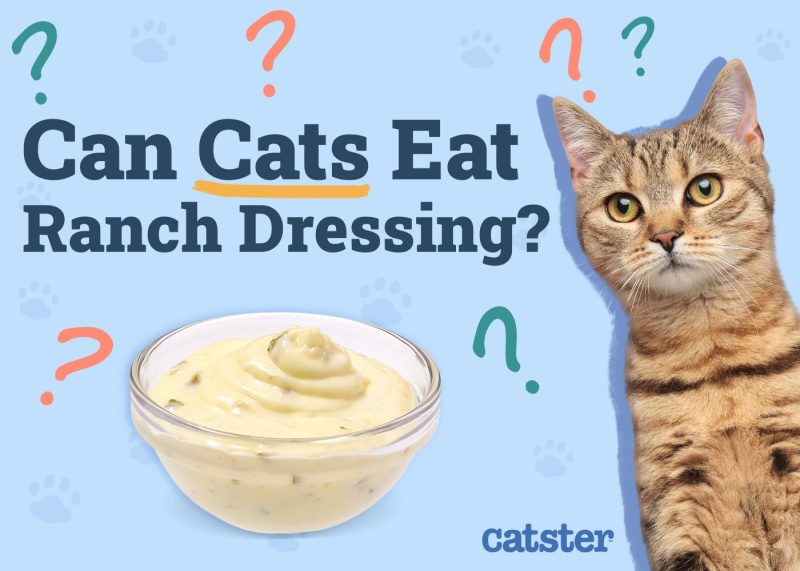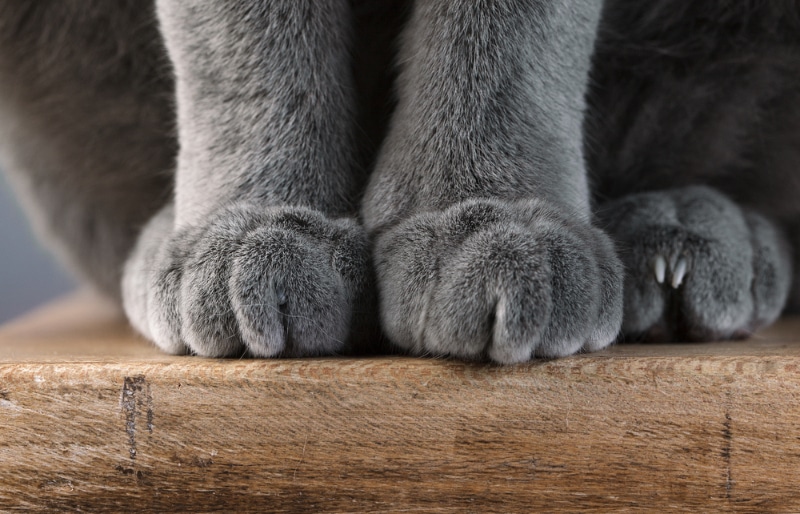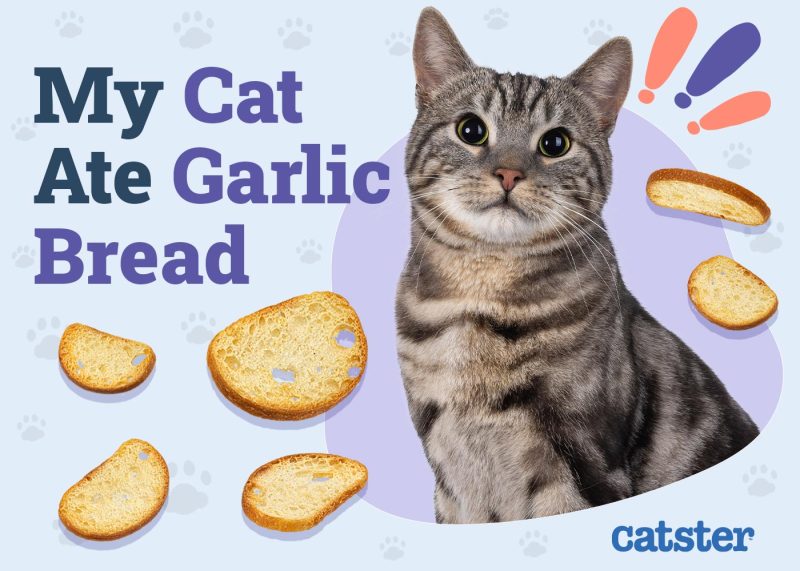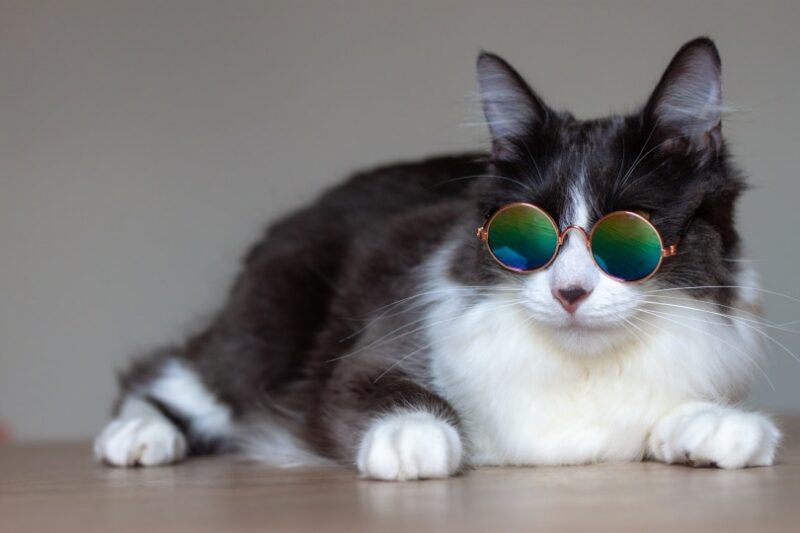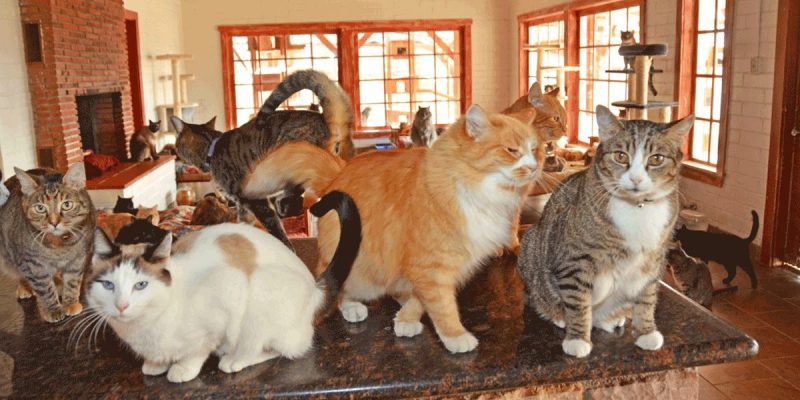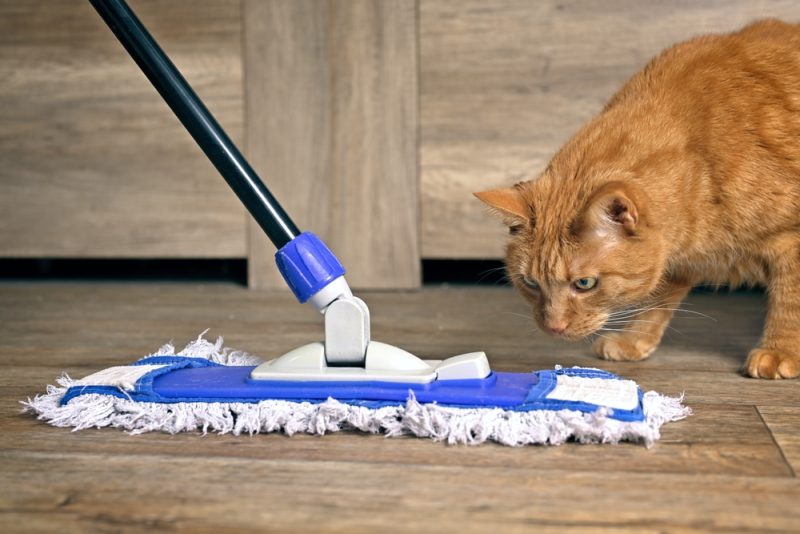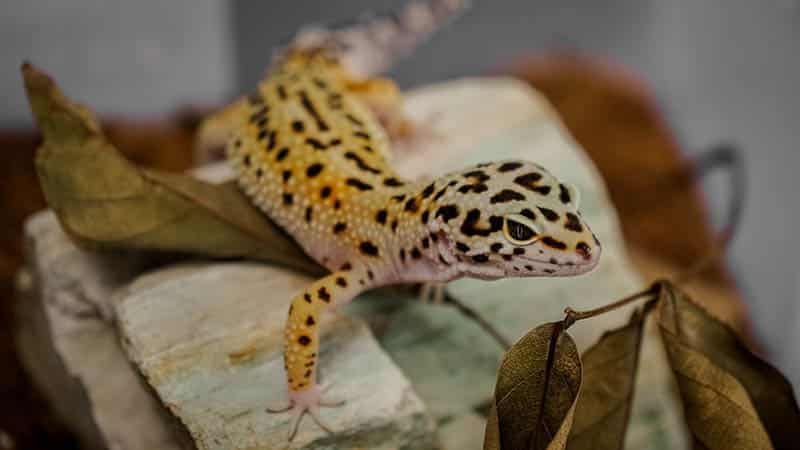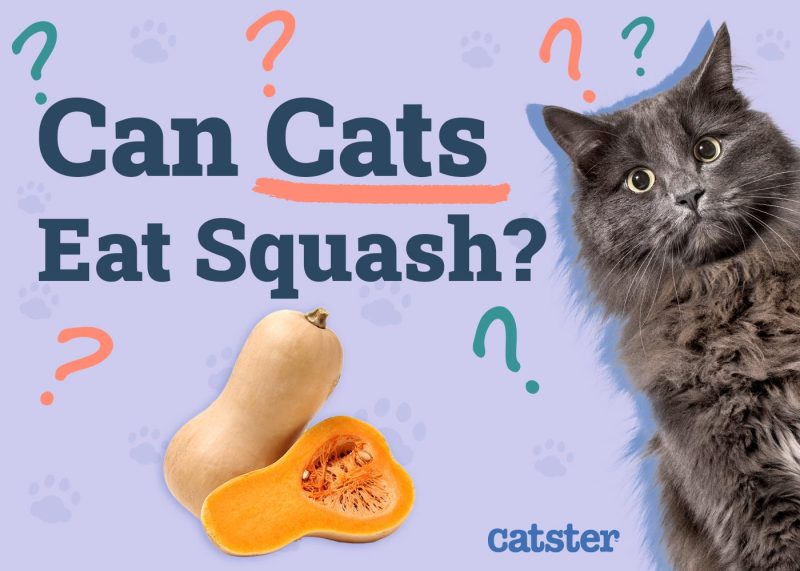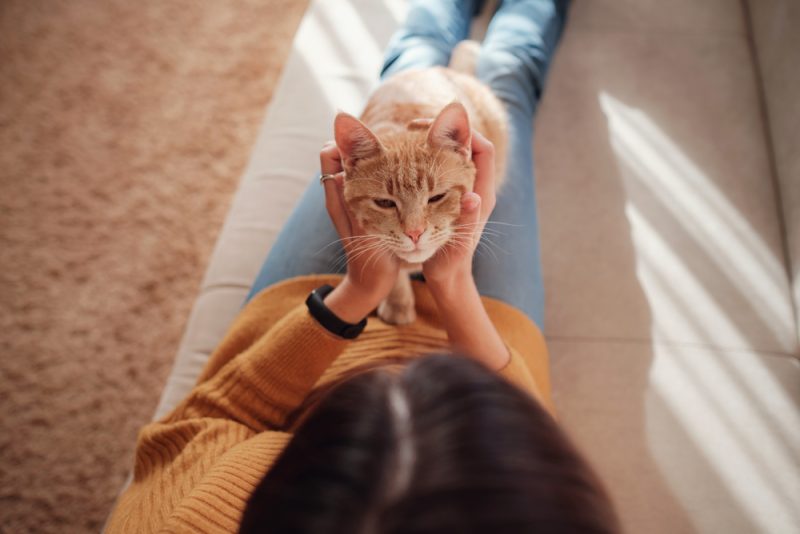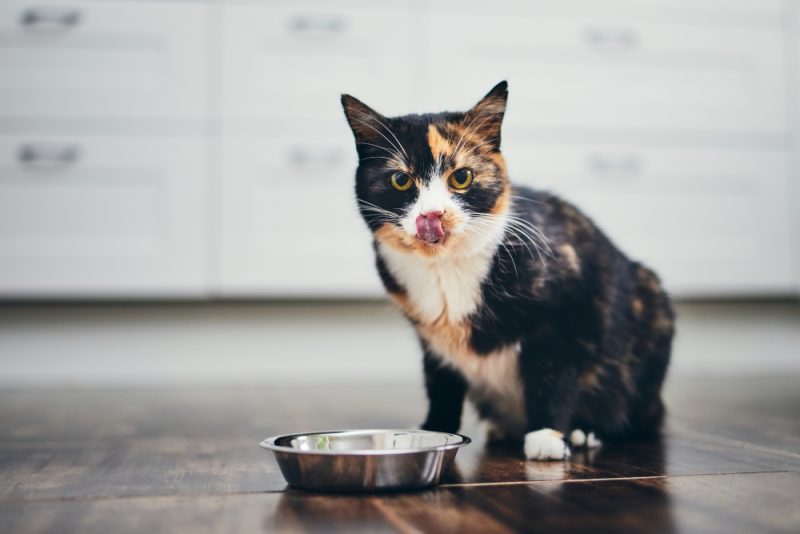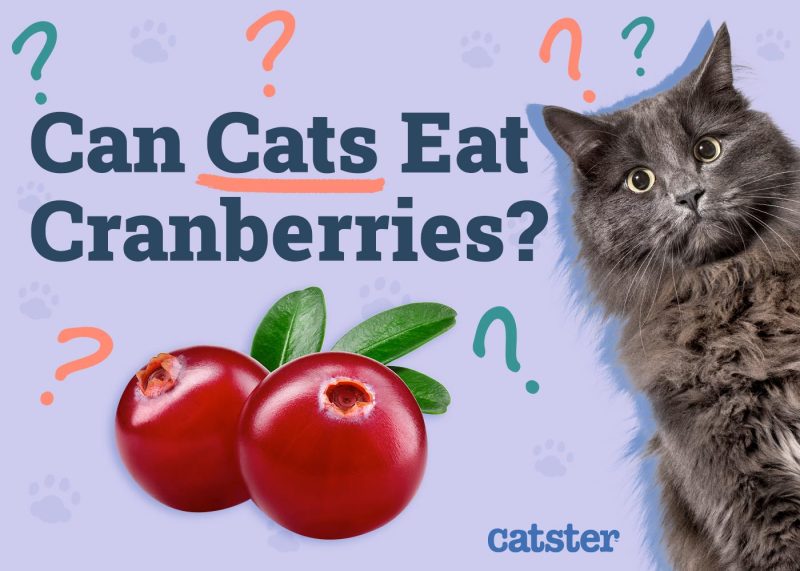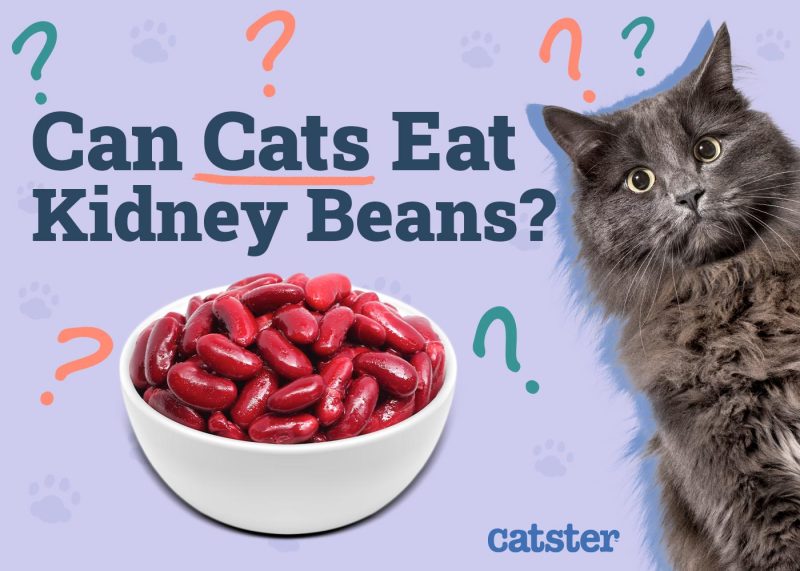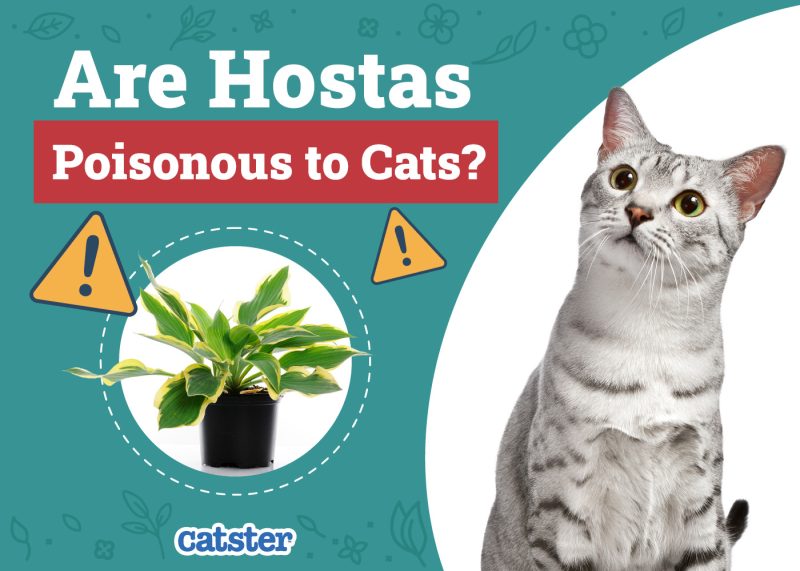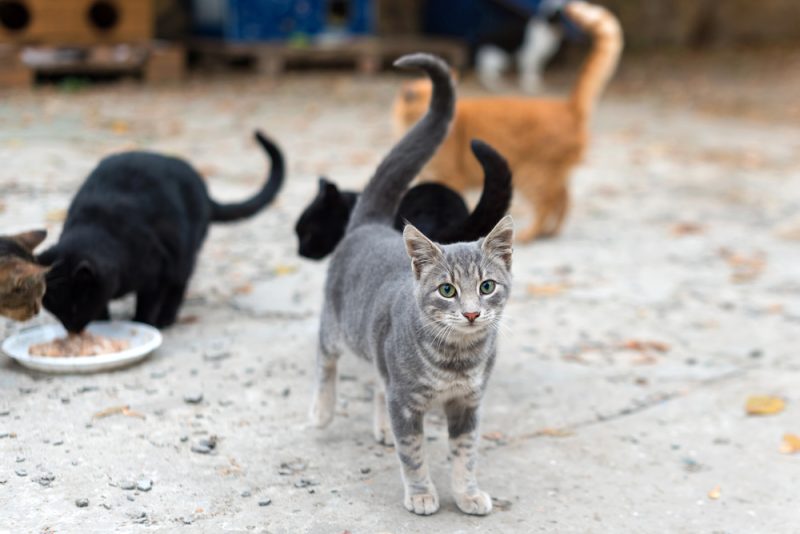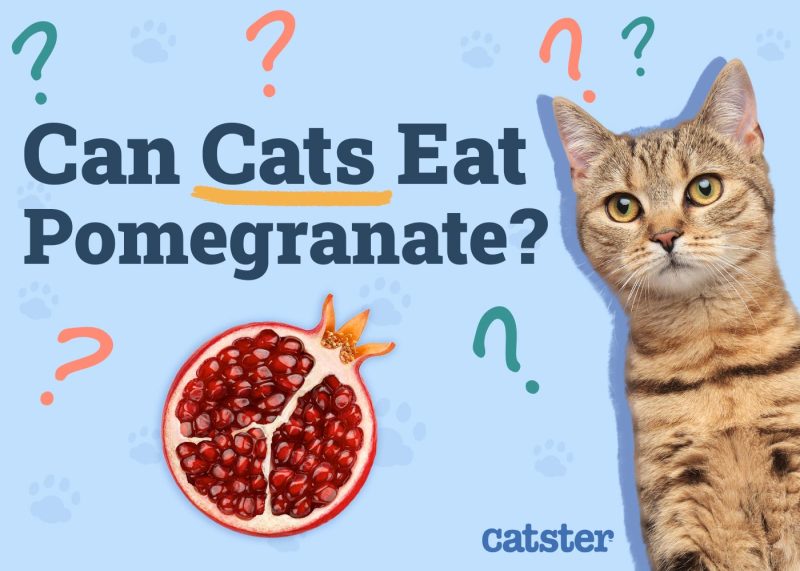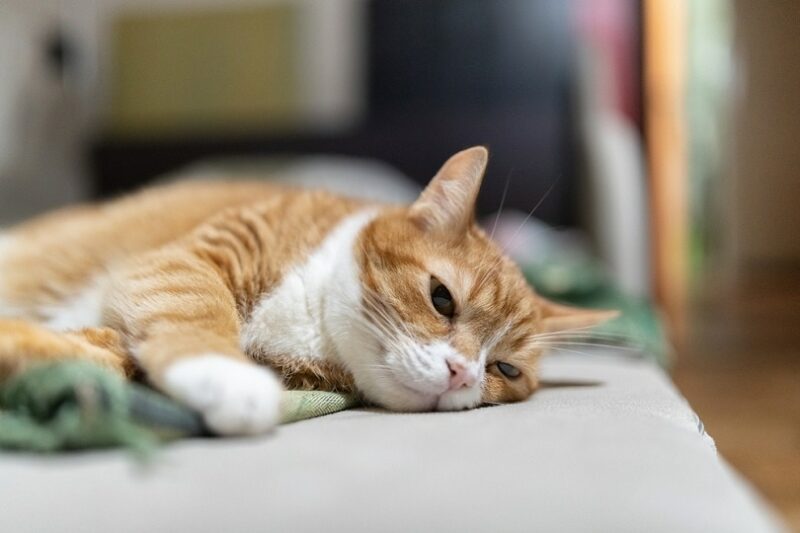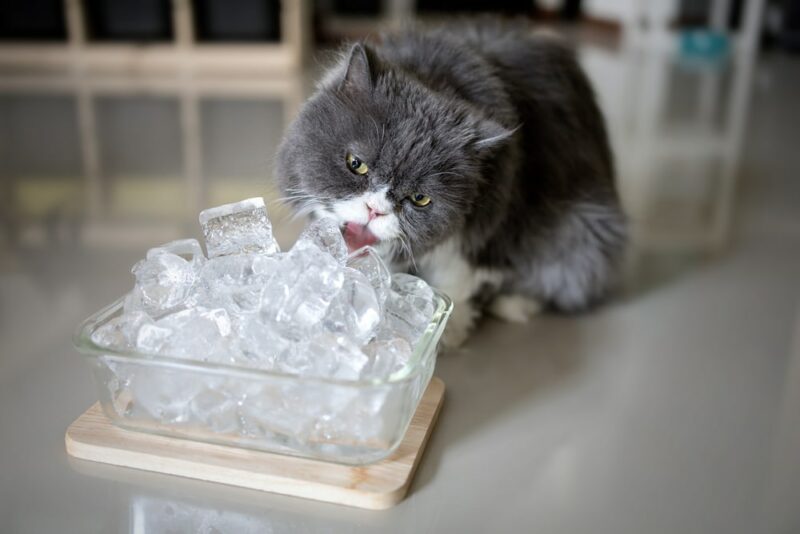Ranch dressing is popular in the United States. It was once only used as a salad dressing, but now, the tangy mixture is often a marinade for meat and seafood, dipping sauce for fried food, and a flavoring for processed snacks. Some cat lovers provide human treats for their pets, but can cats eat ranch dressing?
No, cats should never eat ranch dressing. A lick from a ranch-covered plate is not cause for alarm but serving ranch as a treat can harm your pet.
Ranch dressing has no nutritional value to cats and very little to humans. Four of the most common ranch ingredients (chives, onion, garlic, and buttermilk) should never be part of the feline diet. To highlight the risks of giving ranch to your cat, we’ll break down how the harmful components affect the animal.

Chives, Onions, Garlic
Garlic, chives, onions, and leeks are members of the allium family. Any allium vegetable is toxic to cats, dogs, and even birds. Symptoms that result from a cat consuming a toxic amount of allium may not surface for several days but may include vomiting, lethargy, diarrhea, rapid breathing, loss of appetite, rapid heart rate, and gastric distress. According to the American College of Veterinary Pharmacists, a 10-pound cat can experience allium toxicity from ingesting 0.75 ounces or more.
The danger of adverse reactions to allium increases with lighter, younger cats, so a kitten is extremely vulnerable to the effects of onions and ranch dressing. Whether it’s raw, sauteed, or baked, the toxicity of onions is present in all its forms. Although a tiny amount is unlikely to harm a feline, feeding ranch frequently can have disastrous results. Allium toxicity can build up over time and lead to red blood cell damage.
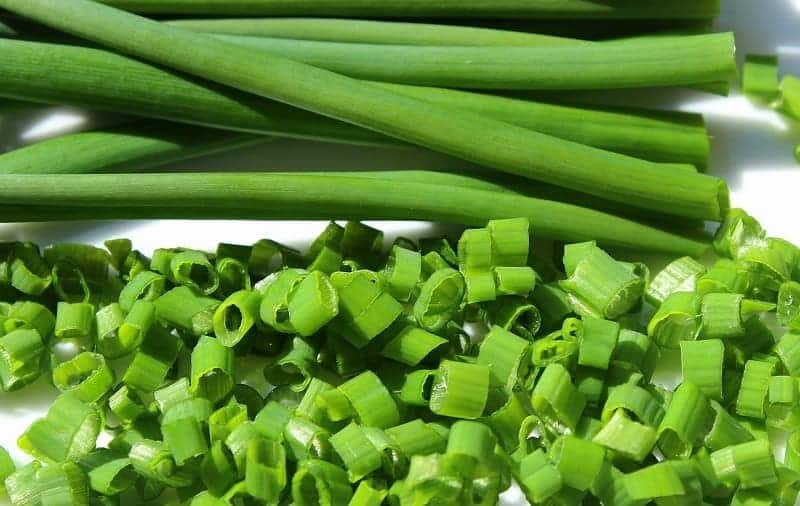
Buttermilk, Sour Cream, Mayonnaise
Although dairy products like milk, cheese, and sour cream may seem like harmless foods for cats, they are not suitable additions to a healthy diet. How can dairy be harmful when cats have enjoyed bowls of milk throughout history? Some cats, like humans, are more lactose intolerant than others. When cats are born, they have more lactase in their systems so that they can digest their mother’s milk. As they develop, the amount of lactase decreases, and they become more susceptible to adverse reactions from dairy products.
When adult cats consume milk, the undigested lactose travels through the intestinal tract, drawing water and settling in the colon. Colon bacteria can produce volatile fatty acids from the fermented, undigested sugars. Diarrhea is the most common result, but dairy can also cause vomiting and an upset stomach. While a small portion of dairy is not life-threatening, it’s best to avoid it entirely.
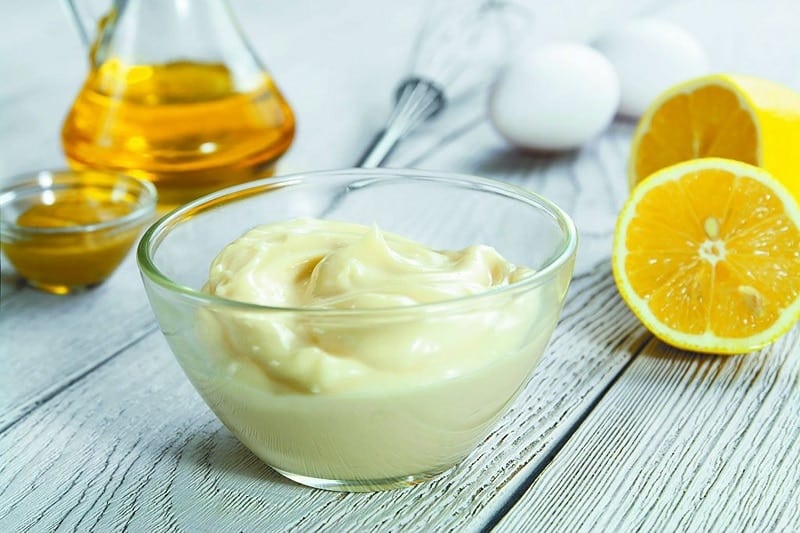

Safe Food for Cats
Most food made for humans is unhealthy for cats. People like adding sugar, salt, and fats to meals, often in unhealthy quantities. When preparing treats for your cat, avoid adding any spices, oils, or additives. Plain food is the best option, but what items can you serve?
Meat
With a short intestinal tract that efficiently processes animal proteins, a cat is designed to consume meats rather than protein from plants. Beef, chicken, turkey, and lamb are excellent choices for cat treats. If you’re cooking meat for the family, set aside some unseasoned strips of meat for your cat to enjoy. Be sure to remove any small bones and fat pieces and cook the meat thoroughly to prevent a foodborne illness. After allowing the meat to cool, dice it up into small pieces, so it’s easy for your cat to digest.
Seafood
Leave the plate of sushi for your human guests, but you can cook fish, shrimp, and other seafood for your cat. Seafood is loaded with omega fatty acids that benefit the animal’s eyesight and reduce the chances of heart disorders, arthritis, and kidney disease. Processed seafood meals that have spicy marinades and battered coatings should not be fed to cats, but fresh seafood that’s properly cooked is a healthy addition to the furball’s diet.
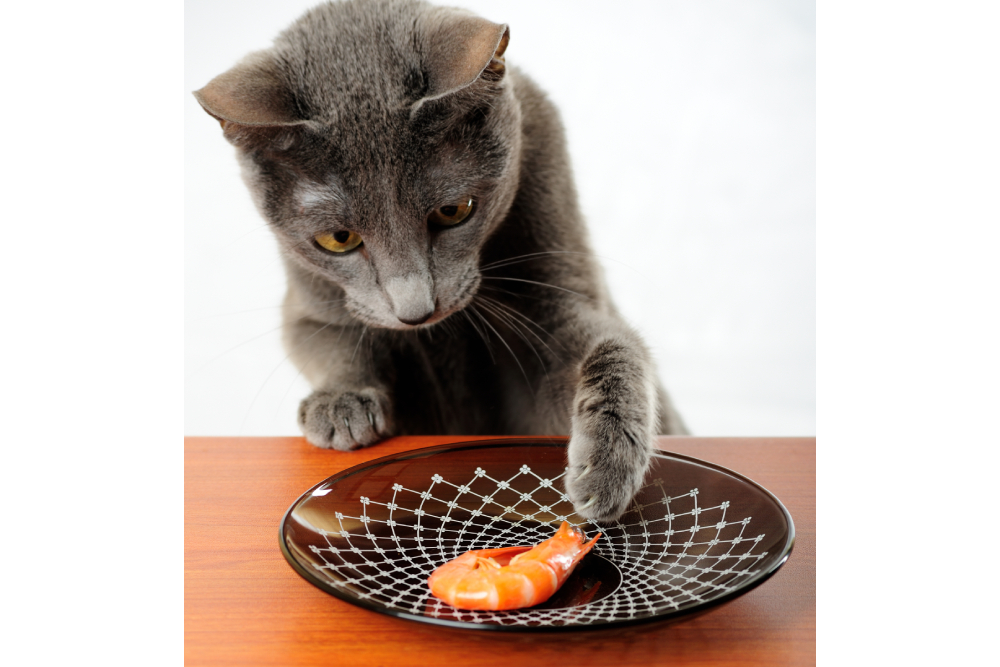
Cooked Eggs
Eggs are an excellent source of protein for your cat but ensure that the eggs are cooked before serving them. Raw eggs can contain salmonella, and the bacteria can make humans and pets sick. Although eggs contain protein, they also have high fat levels in the yolk. If your cat is overweight, you can feed it cooked egg whites to reduce the fat content. Before adding eggs to your cat’s food, consult your veterinarian. The recommended portion size of cooked eggs added to cat food is approximately one tablespoon.
Vegetables and Fruit
Cats are more likely to consume vegetables than fruit, but some cats may stay clear of fruit and vegetables. Some of the safest fruit and vegetables to serve include:
Unlike humans, cats do not have a sweet tooth. Berries and other fruits that are naturally sweet will probably not appeal to your cat’s taste buds, but a small serving of steamed vegetables is more appetizing. Before giving your cat vegetables, steam or boil them to make the food easier to digest. With fruit, remove all seeds and pits to prevent a choking hazard. Some fruits, like avocado, are toxic to felines and should be avoided.
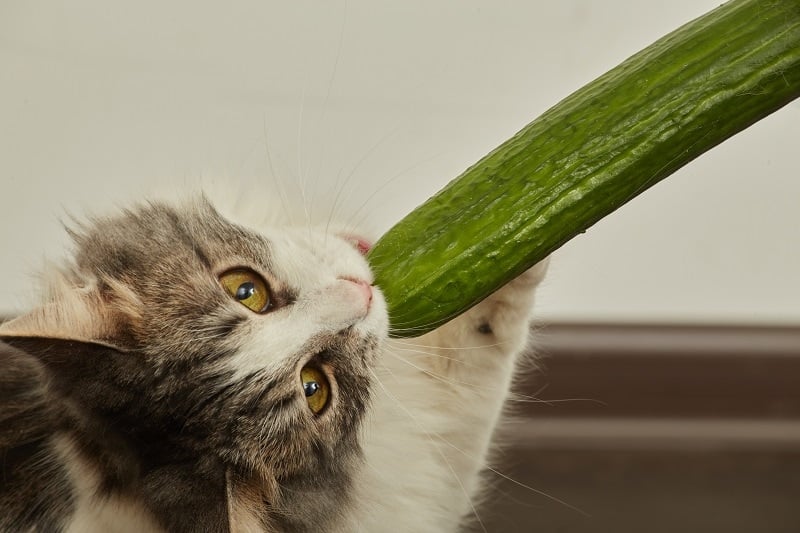
Whole Grains
Few cats are allergic to grains, but if your cat is sensitive to them, it’s best to avoid meals with grains. Like vegetables, grains should be cooked for cats for better digestion. Oats, polenta, couscous, and other small grains are high in protein and safe for your cat. However, grains should not be a primary source of protein. Meat and seafood are the recommended components of a healthy feline diet.

Foods To Avoid
Adding small amounts of human cuisine to your pet’s food can increase the nutritional value of nutrient-deficient meals, but some items can cause digestive problems and even severe medical conditions. At all costs, avoid serving these foods to your lovable cat.
- Avocado
- Alcohol
- Caffeine
- Chocolate
- Coffee
- Coconut oil
- Grapes
- Raisins
- Dairy
- Macadamia nuts
- Yeast dough
- Almonds
- Pecans
- Walnuts
- Onions, garlic, chives
- Processed snacks
- Raw meat or eggs
- Products with xylitol sweetener
A Balanced Diet for Cats
It’s challenging to pick reliable food for your pet when you’re flooded with options. Dry food used to be the cheapest way to feed your pet, but premium brands typically cost more than wet varieties. Grain-free meals, raw diets, and fresh food delivery services are only a few of the newest options for pet parents, but what diet is best for your feline? According to vets, the ingredients in cat food are not as important as the overall nutrition the food provides. The amount of protein and fat in a meal is the most critical detail for determining the nutritional value of the food.
Brands with high protein content, moderate fat, and low carbohydrate are healthier for your cat. Although carbohydrates have developed a bad reputation in cat food, a small portion of carbs is not harmful. Carbohydrates give dry food the crunch that cats enjoy and make the meal more affordable. The amount of food you feed your furball depends on its age, weight, and health, but generally, cats should consume around 200 calories every day.
Cat food should also contain vitamins, minerals, and amino acids, but veterinarians advise looking for brands that include those nutrients instead of adding dietary supplements. Unless your vet has prescribed a supplement, high-quality cat food should provide the required portions of nutrients. Vets also suggest limiting the number of treats given every day to reduce the chances of obesity. According to University of Florida professor Dr. Richard Hill, treats should only comprise 5% to 10% of the feline’s daily caloric intake.
Need veterinary advice but can't get to the clinic? Catster recommends PangoVet, our online veterinary service. Talk to a vet online and get the answers and advice you need for your cat without having to leave your living room — all at an affordable price!


Final Thoughts
A small spoonful of ranch will not harm most cats, but ranch dressing is a nutritionally-deficient food that should not be part of a healthy diet for cats. Most cats weigh 10 pounds or less, and the components of human food affect them more profoundly than humans, who weigh at least ten times as much. Although you can serve plenty of items that are safe for your cat from your dinner table, the experts recommend serving only high-quality cat food and limited treats to keep your cat healthy.
Featured Image Credit: Elena Veselova, Shutterstock
